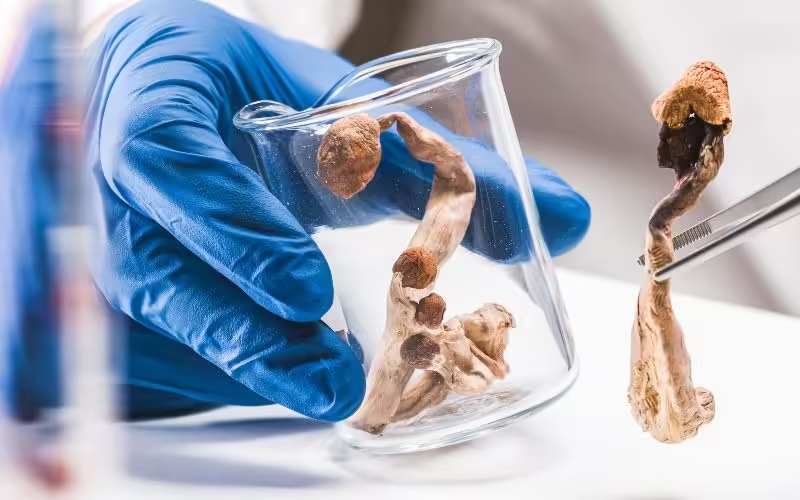Psilocybin shows promise as a potential treatment for obsessive compulsive disorder, according to research at The Florey brain research center in Australia.
The study demonstrated that a single injected dose of psilocybin may reduce compulsive behaviors in mice.
Ph.D. student James Gattuso led the study supervised by Dr. Thibault Renoir and Professor Anthony Hannan.
Gattuso worked with mice that showed compulsive grooming behavior.
The mice, referred to in the study as SAPAP3 knock-out (KO), groomed themselves significantly less after a dose of psilocybin, suggesting a decrease in compulsive tendencies, according to a Florey news release.
Psilocybin didn’t significantly alter anxiety-like behavior in the mice but reduce compulsive grooming activity.
The research team wrote in their report, published in the journal Neuropharmacology, that psilocybin increased physical activity in control mice but not in KO mice.
“This indicates that KO mice have altered serotonin functionality compared to control mice,” Gattuso said. “Serotonin receptors are involved in compulsive behaviors and so it possible that psilocybin corrected the altered serotonin functionality in KO mice. This theory needs to be tested in follow up molecular experiments.”

